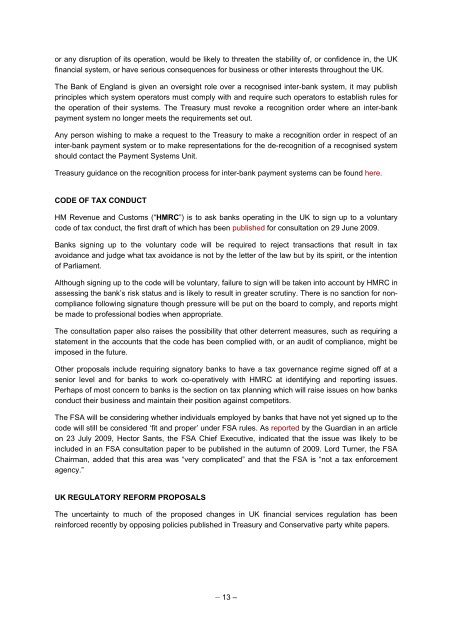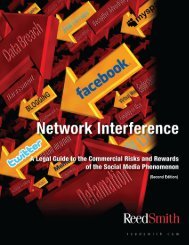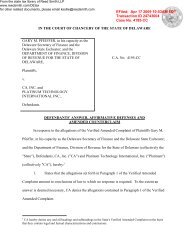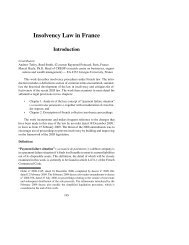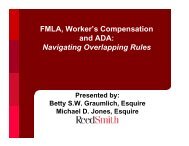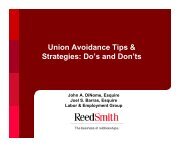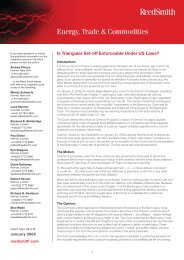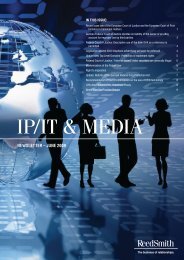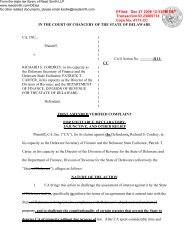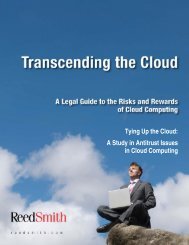Banking Industry Regulatory Update - Reed Smith
Banking Industry Regulatory Update - Reed Smith
Banking Industry Regulatory Update - Reed Smith
- No tags were found...
You also want an ePaper? Increase the reach of your titles
YUMPU automatically turns print PDFs into web optimized ePapers that Google loves.
or any disruption of its operation, would be likely to threaten the stability of, or confidence in, the UKfinancial system, or have serious consequences for business or other interests throughout the UK.The Bank of England is given an oversight role over a recognised inter-bank system, it may publishprinciples which system operators must comply with and require such operators to establish rules forthe operation of their systems. The Treasury must revoke a recognition order where an inter-bankpayment system no longer meets the requirements set out.Any person wishing to make a request to the Treasury to make a recognition order in respect of aninter-bank payment system or to make representations for the de-recognition of a recognised systemshould contact the Payment Systems Unit.Treasury guidance on the recognition process for inter-bank payment systems can be found here.CODE OF TAX CONDUCTHM Revenue and Customs (“HMRC”) is to ask banks operating in the UK to sign up to a voluntarycode of tax conduct, the first draft of which has been published for consultation on 29 June 2009.Banks signing up to the voluntary code will be required to reject transactions that result in taxavoidance and judge what tax avoidance is not by the letter of the law but by its spirit, or the intentionof Parliament.Although signing up to the code will be voluntary, failure to sign will be taken into account by HMRC inassessing the bank’s risk status and is likely to result in greater scrutiny. There is no sanction for noncompliancefollowing signature though pressure will be put on the board to comply, and reports mightbe made to professional bodies when appropriate.The consultation paper also raises the possibility that other deterrent measures, such as requiring astatement in the accounts that the code has been complied with, or an audit of compliance, might beimposed in the future.Other proposals include requiring signatory banks to have a tax governance regime signed off at asenior level and for banks to work co-operatively with HMRC at identifying and reporting issues.Perhaps of most concern to banks is the section on tax planning which will raise issues on how banksconduct their business and maintain their position against competitors.The FSA will be considering whether individuals employed by banks that have not yet signed up to thecode will still be considered ‘fit and proper’ under FSA rules. As reported by the Guardian in an articleon 23 July 2009, Hector Sants, the FSA Chief Executive, indicated that the issue was likely to beincluded in an FSA consultation paper to be published in the autumn of 2009. Lord Turner, the FSAChairman, added that this area was “very complicated” and that the FSA is “not a tax enforcementagency.”UK REGULATORY REFORM PROPOSALSThe uncertainty to much of the proposed changes in UK financial services regulation has beenreinforced recently by opposing policies published in Treasury and Conservative party white papers.– 13 –


